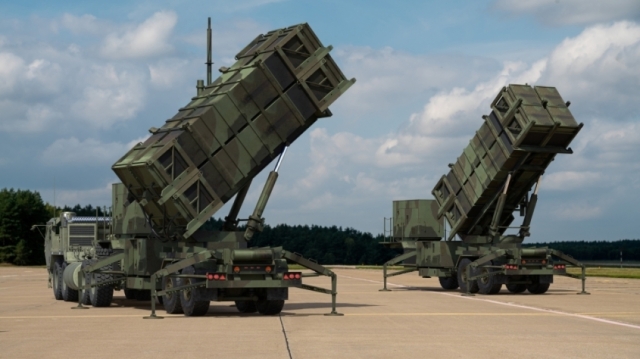NATO is calling on its European member states to enhance their ground-based anti-aircraft capabilities by five times as the alliance intensifies efforts to address significant defense vulnerabilities amid rising threats from Russia, according to insiders familiar with the talks.
This topic will be discussed in the upcoming NATO defense ministers’ meeting in Brussels on Thursday. The information has been provided by officials who requested anonymity due to the confidential nature of the discussions.
Addressing a 30-Year Shortfall
The objective of the alliance is to remedy a longstanding deficiency in air defense, which has developed over the last three decades as NATO has gradually diminished its relevant infrastructure in Europe. This trend began post-Cold War when strategic attention shifted away from Eastern Europe towards threats from the Middle East and North Africa.
An anonymous official from the alliance stated, “the increase in Russian aggression” necessitates an urgent and coordinated upgrade of anti-aircraft capabilities, particularly in nations bordering Russia and those in NATO’s eastern flank.
This initiative primarily focuses on bolstering ground-based systems to intercept drones, cruise missiles, and manned attacks by advancing technology and procuring new weapons systems from member states that have previously had limited capabilities in this domain.
Reallocation of Resources and Allied Collaboration
NATO’s proposal is also anticipated to lead to discussions regarding the reallocation of defense budgets within the European Union and national expenditures. Some countries, including Germany and Poland, are already increasing their investments in air defense.
Simultaneously, the alliance is exploring new collaborative models and joint procurement strategies to expedite processes and ensure interoperability among the various systems to be deployed.
Although the decision to reinforce anti-aircraft capabilities fivefold has not yet been formally approved, it remains a top priority on the Summit agenda and is likely to result in upcoming joint announcements and strategic plans.
Ask Me Anything
Explore Related Questions
















